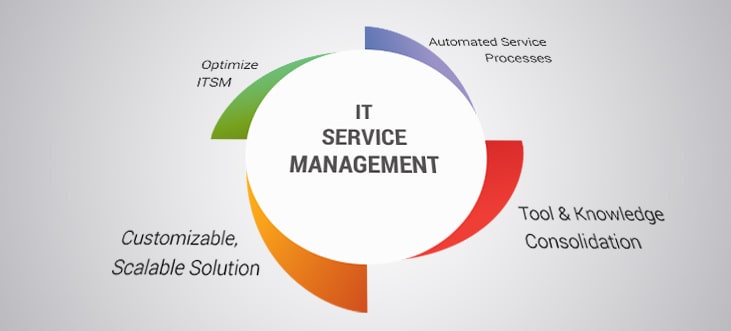In today's fast-paced digital landscape, the IT industry plays a pivotal role in the success and efficiency of businesses worldwide. As organizations increasingly rely on technology to streamline their operations, the importance of managing IT services effectively becomes paramount. IT Service Management (ITSM) is a comprehensive approach that enables companies to deliver high-quality IT services while aligning their IT strategies with overall business objectives. This article explores the significance of ITSM in the IT industry and its profound impact on businesses' success.
Enhancing Efficiency and Productivity
ITSM methodologies and frameworks, such as ITIL (Information Technology Infrastructure Library), focus on streamlining processes and improving operational efficiency. By following best practices, organizations can standardize workflows, reduce redundancies, and eliminate unnecessary downtime, leading to increased productivity. Furthermore, ITSM fosters a culture of continuous improvement, encouraging IT professionals to analyze and optimize their services continually.
Customer-Centric Approach
Customer satisfaction is the lifeblood of any business. With ITSM, the IT industry can adopt a customer-centric approach by aligning IT services with the specific needs of end-users. By understanding customer requirements and expectations, IT departments can tailor their services, improve response times, and address issues more effectively. This ultimately leads to higher customer satisfaction and improved loyalty.
Incident Management and Rapid Response
In the IT industry, incidents such as system outages or security breaches can have severe consequences. ITSM provides a structured incident management process, enabling IT teams to swiftly identify, address, and resolve issues. The use of incident management tools and procedures helps minimize service disruptions, reducing downtime, and mitigating the impact on business operations.
IT Governance and Compliance
With the ever-increasing complexity of IT environments, ensuring compliance with industry regulations and data protection laws is crucial. ITSM frameworks assist organizations in establishing robust governance structures, facilitating compliance with standards like GDPR, HIPAA, and PCI DSS. Effective ITSM implementation also aids in managing risks and maintaining data integrity, which is essential for businesses handling sensitive information.
Cost Optimization
The IT industry often faces budgetary constraints, necessitating cost optimization strategies. ITSM promotes a proactive approach to resource management, helping organizations allocate IT assets more efficiently. By identifying areas of waste and optimizing resource allocation, companies can achieve cost reductions without compromising service quality.
Seamless Change Management
In the rapidly evolving IT landscape, organizations need to adopt new technologies and update existing systems regularly. Without proper change management, implementing these changes can lead to chaos and downtime. ITSM frameworks provide a structured approach to manage changes, reducing the risk of errors and ensuring a seamless transition.
Performance Measurement and Continuous Improvement
One of the key principles of ITSM is the emphasis on measurement and analysis of service performance. By monitoring key performance indicators (KPIs) and service level agreements (SLAs), organizations can gain insights into their IT service performance. These metrics help in identifying areas for improvement, fostering a culture of continuous enhancement and innovation.
IT Asset Management
The IT industry deals with a wide range of physical and virtual assets, from hardware components to software licenses. ITSM facilitates efficient asset management by maintaining an accurate inventory, tracking asset lifecycles, and optimizing resource utilization. Effective IT asset management ensures that organizations have the right resources at the right time, preventing unnecessary expenditures and enhancing productivity.
Knowledge Management
The IT industry thrives on knowledge, and effective knowledge management is critical for success. ITSM encourages the documentation of best practices, solutions to common issues, and lessons learned from past incidents. This knowledge base empowers IT professionals to access relevant information promptly, leading to faster problem-solving and more informed decision-making.
Facilitating Business-IT Alignment
To thrive in a competitive market, the IT industry must align its services with overall business goals. ITSM helps bridge the gap between business objectives and IT operations by ensuring that IT services are designed, delivered, and managed to support the broader organizational vision. This alignment fosters a strong partnership between IT and other business units, promoting a more cohesive and efficient working environment.
Conclusion
In conclusion, IT Service Management is an indispensable aspect of the IT industry that directly influences business success. By focusing on efficiency, customer satisfaction, incident management, compliance, and cost optimization, ITSM enables organizations to deliver high-quality IT services while fostering a culture of continuous improvement and innovation. Embracing ITSM principles and frameworks empowers businesses to navigate the ever-evolving IT landscape effectively and gain a competitive edge in the digital era. As the IT industry continues to play a central role in global economies, the importance of ITSM will only grow, shaping the future of businesses and technology alike.


No comments yet